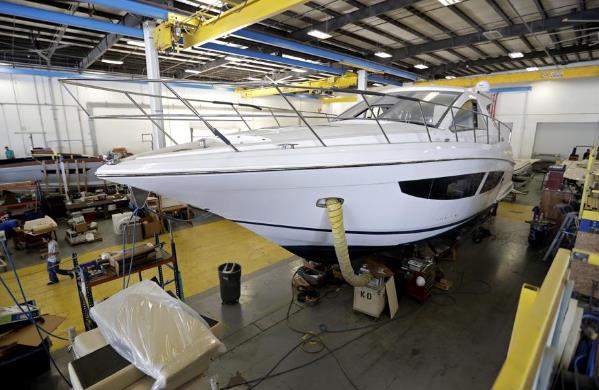
The US action to escalate trade friction will not solve any problem, but rather will push the global economy into a trap of uncertainty that includes a possible world economic recession, the Ministry of Commerce said on Thursday.
Gao Feng, the ministry's spokesman, said whether the trade friction will grow will be decided by attitudes in the United States.
China is not afraid of confrontation, he said, and if necessary will react to Washington's actions.
The remarks came after the US government announced on Tuesday a list of $200 billion worth of Chinese goods for possible 10 percent tariffs. Gao said the country has not started any further negotiation on the matter with the US.
To address US trade protectionism, the ministry reiterated that China will continue to assess the impact on its companies and take measures accordingly.
Among the measures are encouraging companies to adjust their export structures and exploring other international markets. "We will always find a way out amid difficulties," Gao added.
Wu Yibing, head of China operations at Singapore investment firm Temasek Holdings, said there is no winner in a trade war, and the US-China trade war will increase consumption costs for the importing country, thus suppressing consumption.
"The uncertainties brought by the trade war will cause a slowdown in corporate capital expenditures and increase downward economic pressure during the late cycle expansion."
Wu noted that the short-term impact of the trade war and its blow to a single country was exaggerated.
Trade policies of US President Donald Trump's administration are causing concerns for him back home.
The US Senate overwhelmingly passed a resolution on Wednesday that calls on Trump to gain congressional approval before deciding to impose tariffs for national security. The move — which was not binding upon Trump — came as trade groups continued to oppose his new round of hefty duties against China.
Trump's latest escalation has confounded many experts regarding how the trade conflict would end.
"I think the US will lose the case against the Section 301 tariffs," said Simon Lester, associate director of the Herbert A. Stiefel Center for Trade Policy Studies at the Cato Institute, who once served as legal affairs officer at the Appellate Body Secretariat of the World Trade Organization. But he said it will take many years to be litigated.
Lester is not sure how the trade war might end.
"Ideally, it will be through a negotiated agreement. But it's not clear right now if the US is willing to negotiate," he said. "The US is definitely disrupting the system it helped establish."
Nicholas Lardy, a senior fellow at the Peterson Institute for International Economics, said Trump's latest decision to impose the 10 percent tariffs on Chinese imports "represents a doubling-down on his existing tariff strategy".
"His apparent expectation that China will capitulate is not well-founded. The ultimate solution to most trade disputes is mutual negotiation," said Lardy, an expert on the Chinese economy and US-China ties.
Henry Levine, a senior adviser at the Albright Stonebridge Group and former US deputy assistant secretary of commerce for Asia, said it is hard to say how this growing trade friction would end.
"I'd guess that after some time each side will feel the effects of increasing tariffs in both economic and political terms and hopefully at that point they can reach an agreement that will lead to returning tariffs to previous levels."
Jiang Xueqing in Beijing and Zhao Huanxin in Washington contributed to this story.
